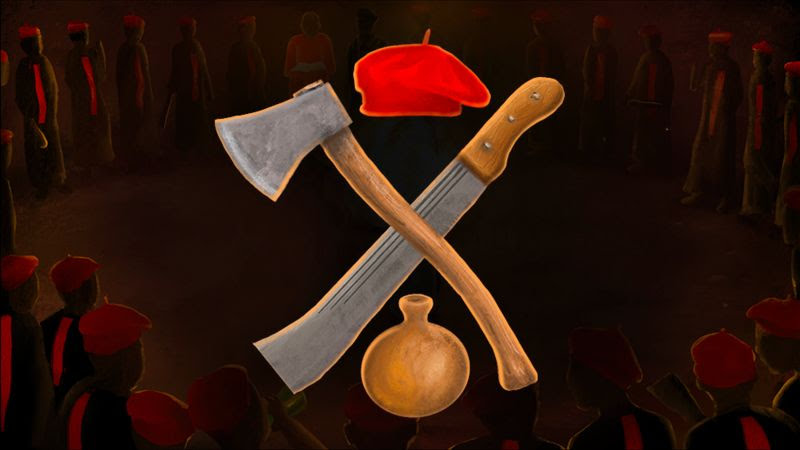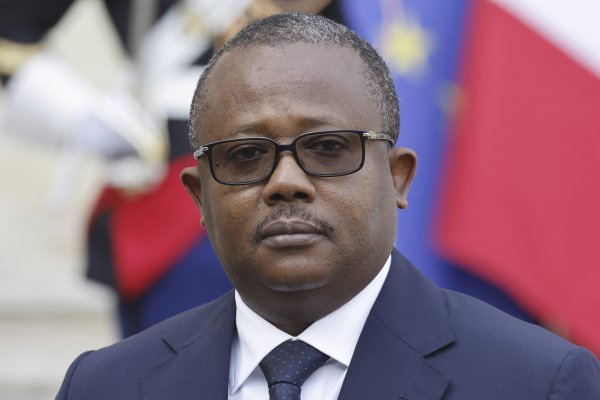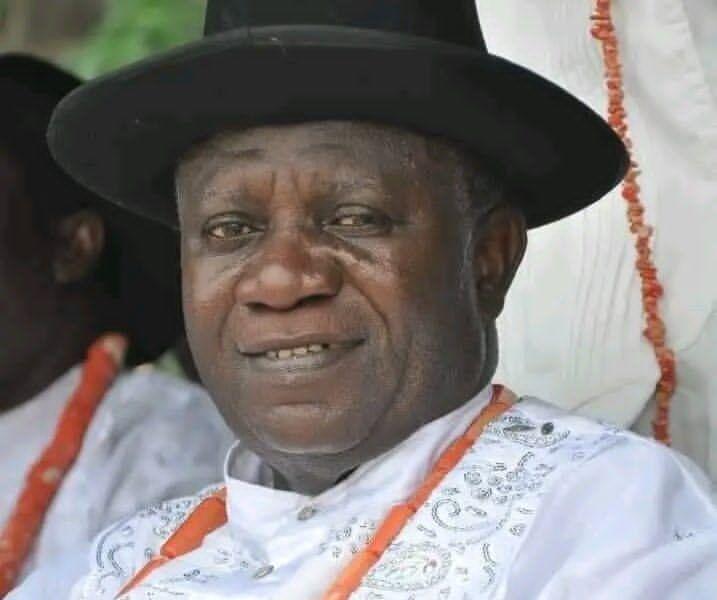CULTISM: Pyrates Confraternity and the Birth of a Social Malaise

Did you know that Pyrates Confraternity was the first and only confraternity on Nigerian campuses for almost 20 years, and that the group is registered with the Nigerian Federal Ministry of Internal Affairs under the Land (Perpetual Succession) Act Cap 98 with the name "The National Association of Seadogs"?
The Nigerian playwright, novelist, poet, and essayist in the English language, Wole Soyinka, born Akínwándé Olúwọlé Babátúndé Ṣóyíinká Hon. FRSL on 13 July 1934, and was awarded the 1986 Nobel Prize in Literature, becoming the first sub-Saharan African to be honoured in that category, was along six others the founders of the popular Pyrates Confraternity, also known as The National Association of Seadogs.
Presently, while the confraternity system in Nigeria is considered violent, it was not always so at the beginning when it started during the last years of British colonial rule, by a set of young idealistic men who were termed as "The Magnificent Seven" According to Soyinka in an interview with the British Broadcast Corporation, BBC, said:
"We were having fun with a social orientation. I never imagined that any university-based group could actually adopt a mafia style, which involved manhood tests like raping, robbery, arms, murder, kidnapping. At no time did I imagine that anything could degenerate. And why did it degenerate? Instead of these kids being treated as the criminals they were, they were being protected by their parents and their relations."
Soyinka, born in Abeokuta, attended Government College in Ibadan in 1954, and subsequently University College Ibadan before proceeding to the University of Leeds in England. After studying in Nigeria and the United Kingdom, he worked with the Royal Court Theatre in London. He went on to write plays that were produced in both countries, in theatres and on radio.
Due to the increase of tribalism among social life of students and the increasing population of "wealthy" students to a relatively few "poorer" students in the University College, Ibadan, the National Association of Seadogs was formed as a body to combat these societal ills and support the fight for human rights and social justice in Nigeria.
Founded in 1952 by Wole Soyinka, Ralph Opara, Pius Oleghe, Ikpehare Aig-Imoukhuede (later left), Nathaniel Oyelola, Olumuyiwa Awe and Sylvanus U. Egbuche (who adopted the name "Magnificent Seven"), the Pyrates Confraternity went on to become the only confraternity on Nigerian campuses for almost 20 years. The group was registered with the Nigerian Federal Ministry of Internal Affairs under the Land (Perpetual Succession) Act Cap 98 with the name "The National Association of Seadogs".
The name Pyrates Confraternity was chosen for "fun" and intended to mock, and the "y" was intended to dissociate the group from modern pirates. Furthermore, the use of the word "confraternity" was intended to distinguish the Pyrates from other fraternities. The confraternity would engage in peaceful protests against the Nigerian government and hold an annual colloquium. Membership into the confraternity was open to students who were bright academically regardless of their tribe or religion.
Presently, the Pyrates confraternity is located in all the southern states in Nigeria and also has branches in some parts of the world including the United Kingdom, Republic of Ireland, South Africa, the Netherlands, Japan, Australia, Canada and the United States. However, some sinister confraternities have been formed to copy the Pyrates Confraternity. This has led to the Nigerian authorities labelling the confraternity a "sinister cult". To dissociate themselves from these "mimic groups," the Pyrates Confraternity had decided to operate outside university campuses; therefore, there should not be any campus groups of the confraternity anywhere in Nigeria at the present time.
During the first weeks of the school year, confraternity alumni and members usually swarm campuses recruiting new members. Initiation ceremonies normally involve severe beatings, in order to test their endurance, as well as ingestion of a liquid mixed with blood. Male initiates may sometimes be required to pass an additional hurdle before becoming full members, such as rape. Among the all-female Jezebels or Amazons, prospective members may be required to undergo six rounds of rough sexual intercourse or fight with a group of women or against a much stronger man. Cults also charge annual membership fees.
Frequent criminal activity for cults include intimidating professors into giving high grades. Since the 1980s, confraternities have murdered people who are thought to have 'stolen' a member's girlfriend, or "sugar daddy" in the case of female groups. Female groups began operating as prostitution rings relatively early. The majority of confraternities, as of 2005, were engaged in a variety of money-making criminal activities, ranging from cybercrime to armed robbery and kidnapping. Cult members may also get money from political figures, who wish to intimidate their opponents.
The exact death toll of confraternity activities is unclear. One estimate in 2002 was that 250 people had been killed in campus cult-related murders in the previous decade, while the Exam Ethics Project lobby group estimated that 115 students and teachers had been killed between 1993 and 2003. However those figures pale into insignificance when compared with recent cult activities in Benin city, the Edo state capital in 2008 and 2009, with over 40 cult related deaths recorded monthly.
Campus cults also offer opportunities to members after graduation. As confraternities have extensive connections with political and military figures, they offer excellent alumni networking opportunities. The Supreme Vikings Confraternity, for example, boasts that twelve members of the Rivers State House of Assembly are cult members.
The Pyrates Confraternity is still very active and high-profile in Nigeria, and its activities are still non-violent in nature. In Nigeria, the confraternity is composed of roughly 3,500 members who are mostly male. The Pyrates operate openly, but are considered "clandestine" by the authorities. Overall, members of the Pyrates Confraternity as well as others are considered "guilty by association" by the Nigerian authorities. The confraternity is also presently seen as a "political opponent" after several members in Port Harcourt were detained in jail for participating in the disruption of election campaigns in 1997. To date, over 25,000 people have belonged to the organization at various stages.
Soyinka, who took an active role in Nigeria's political history and its campaign for independence from British colonial rule, speaking on the negative branding of the Pyrates Confraternity, said: “Everybody knows that fraternities are a normal culture in all colleges. It exists in all colleges. President Clinton was a member of a fraternity. In fact, anybody who goes to college in the United States is a member of a college fraternity. There is absolutely nothing evil or occultic about fraternity.
“But here, the media is largely responsible for fuelling the ignorance of society of the words ‘cultism’ and ‘fraternity’. This is a disservice and I have said it again and again. There are evil cults, whose members must prove themselves by going to rape. There are others whose entry is to slash or eat somebody or rob; it has nothing to do with college fraternity. The media owes the responsibility to constantly tell the public the truth. But they go on and children grow up, believing that college fraternity is Satanic, demonic and this is wrong.”
After the formation of the Pyrates Confraternity, corruption and power struggle started brewing among its members who were beginning to take on elitist notions, one of the very things the group was founded to fight. In the late 1960s, splinter groups emerged from the Pyrates Confraternity to become known as Buccaneers and Eiye. Before long, other breakaway groups began to surface and spread into other Nigerian universities with new themes, philosophies, and creeds that espouse violence and strong-arm tactics of dominion on campuses as they jostled for prestige, power, women, and access to corrupt politicians who were hiring cult members to unleash violence against opponents.
The activities of cult groups soon moved into the larger Nigerian society due to some Nigerian universities' tough anti-cultism stance and because members retained membership after graduation. By 1982, some people in public services were either members of one secret cult group or the other, prompting the then federal government to order members to denounce their membership of such cults or risk losing their jobs. Today, there exist more than 40 cult groups in Nigeria with over 12,000 branches or chapters. Most cult-related violence now occurs in the cities and villages and have even become prevalent in primary and secondary schools as well.
SOURCES:
Nigeria's campus cults: Buccaneers, Black Axe and other feared groups | BBC https://www.bbc.com/news/world-africa-5248892
Pyrates Confraternity Isn't A Cult, Says Soyinka | Vanguard https://www.vanguardngr.com/2015/08/pyrates-confraternity-isnt-a-cult-says-soyinka
Cultism In Nigeria: A Theatre Of Blood And The Way Forward By Richard Abam https://primeprogressng.com/posts/cultism-in-nigeria-a-theatre-of-blood-and-the-way-forward-9
Confraternities in Nigeria | Wikipedia https://en.m.wikipedia.org/wiki/Confraternities_in_Nigeria
National Association of Seadogs https://en.m.wikipedia.org/wiki/National_Association_of_Seadogs
#penglobalhistory



